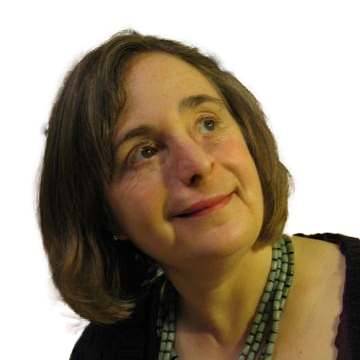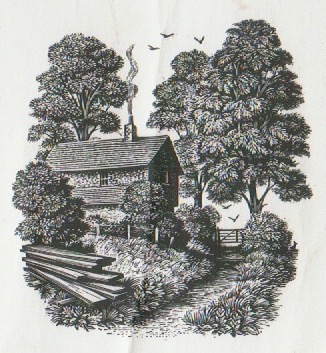Iʼm part of a book club, and some weeks ago another member was offering around a few books she wanted to move on. The one that called to me was Deep Country by Neil Ansell. I hadnʼt heard of either the book or the author before, so the attraction was in the title—and probably the rather nice woodcut that adorned the cover. I felt drawn to a book that promised a remove from the cut and thrust of clashing egos that make up the unfolding story of the world, our nation, and the plots of most novels. I was not to be disappointed. Neil Ansellʼs book plunged me deep into the Welsh countryside, in a place where encounters with birds and beasts could be counted on, but you might have to wait a few weeks to meet another human.
A second draw to this book was a detail from the blurb. This suggested that C S Lewis, who populated his Narnia series with talking beasts, would have envied Ansellʼs encounters. I loved Lewisʼs Narnia books as a child, and as an adult I have reflected on how the classicist in Lewis overcame an aspect of his evangelical Christianity in this display of his love for a pagan past, a Golden Age in which humans could talk with other species and nature spirits populated the woods and fields and rivers. But here I confess I was a little disappointed, because Ansellʼs encounters with beasts and birds—mostly birds—seemed to involve detailed observation, but little communication.
However, an observation in the chapter called The Still Point really caught my interest. There was a day when he saw a crow taken by a buzzard, but then dropped from the sky. He was walking along a river bank at the time, and the dead bird landed, splash, in the stream. It was what happened next that gave me pause. Ansell writes:
ʻAfter a minute or so, a second crow arrived, and began to circle and swoop over the floating body of what I had to assume was its mate, making calls of the utmost distress. It was very sad – crows pair for life. But what happened next took me aback. Over the course of the next minute or two, more crows began to race to the scene, flying in from every direction, until there were twenty or thirty of them wheeling and diving and calling above the dead bird. These are not in any way social birds, but crisis had brought them together and I felt as though I was witnessing a crow wake.’
Ansellʼs observation that he seemed to have witnessed a bird wake is the sort of claim that is routinely challenged by people who feel that anyone who thinks another species exhibits behaviour akin to that of humans is guilty of anthropomorphism. During my lifetime I have come to know closely: one budgerigar, one guinea pig, two dogs and a couple of cats. Itʼs the cats whose way of being in the world seems most distinct from humans. At least the ones Iʼve known have their own laws and priorities, many of which I have to respect without actually sharing. But Iʼve witnessed my friends from the other species showing off, feeling ashamed, expressing gratitude, or dismay: a whole gamut of things I recognise from the human mindset.
The idea that Iʼm completely mistaken in these observations is something Iʼve been both unable and unwilling to accept. I could only do so by abandoning my ability to assess the evidence of my senses: a dangerous procedure that leaves one open to endless suggestibility and manipulation. So recently Iʼve been pleased to find scientists who have begun to challenge this creed. The naturalist Sy Montgomery is one such in her book Soul of an Octopus. The title speaks for itself about her view of these creatures, whose way of being in the world is hugely different from that of humans – yet who, on close acquaintance, display a depth of response that draws a deep empathy and respect from the humans who associate closely with them. Witness also the film My Octopus Teacher.
Where does the chorus of accusation of anthropomorphism come from? Why is the idea that humans and other species might have something in common so scorned? Could it be that this has something to do with the disconnect humans have set up between themselves and the rest of the natural world? —Something I touched on in my first blog post, Nature and Us. Of course we must be careful about our interpretations, and avoid being categorical in any assertion about what is going on in another beingʼs consciousness. This applies when the other being is a human one, and much more so when they arenʼt. But thatʼs not a reason for refusing to recognise commonality when it appears to be staring us in the face.
The other thing that has stayed with me from Neil Ansellʼs book was his self-reflection, towards the close, of changes in the style of the journal he kept during his five years of seclusion in Wales. It started as ʻa fairly straightforward diary, an account of where I went, what I did and how I feltʼ; it became ʻan almanacʼ with ʻarrival dates for spring and autumn migrants; nesting records; perhaps interspersed with an occasional piece of prose capturing a fragmentary moment, say a description of the flight of a single bird.ʼ He goes on: ʻI have disappeared entirely from my own narrative; my ego has dissolved into the mist. I came to the hills to find myself, and ended up losing myself instead. And that was immeasurably better.ʼ
These words reminded me of those attributed to Jesus when he asserts that those who seek to save their lives will lose them, but those who lose their lives will save them. It appears that the five years Ansell spent folded in the hills and woods stripped him of the burden of self-consciousness, and left him free to turn his awareness and attention to all that surrounded him. The ego—which I understand as the organising agent of an individualʼs consciousness—gets a bad press these days. But the ego doesnʼt have to be the Great I Am. Nor does it have to cower under the burden of self-abnegation, low self-esteem. When it has been freed of these shackles it can take its optimal place as an active and powerful servant, carrying out whatever its guiding lights suggest needs to be done at the time. To return to the words of Jesus referred to above, perhaps in a sense Ansell lost his life, his burden of self-consciousness, through his extended contact with that which, in Celtic lore, I have come to know as Godʼs first gospel—the one written in the natural world of which we are, whether we acknowledge it or not, a part.
Gillian


